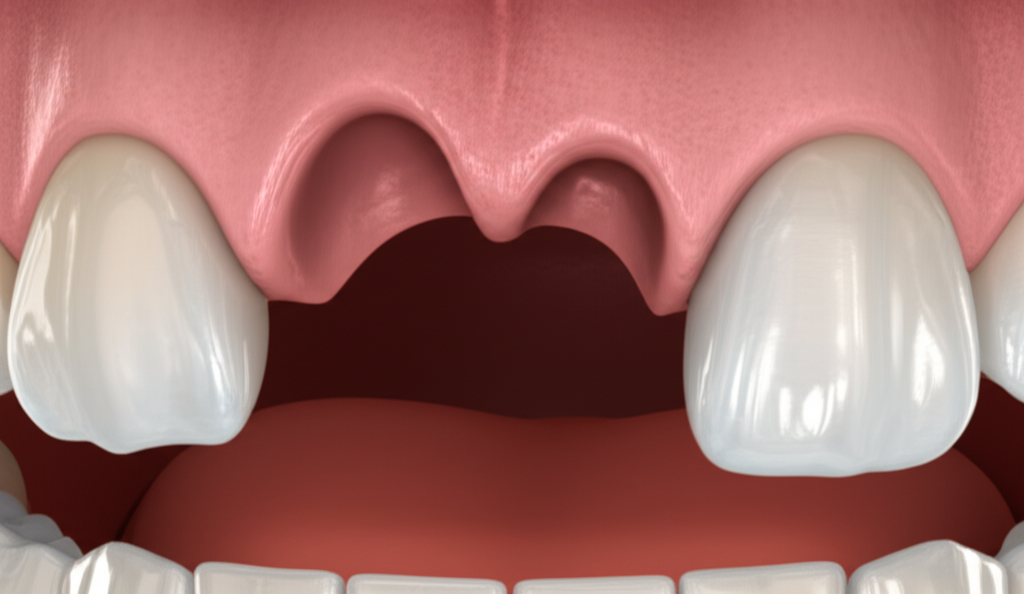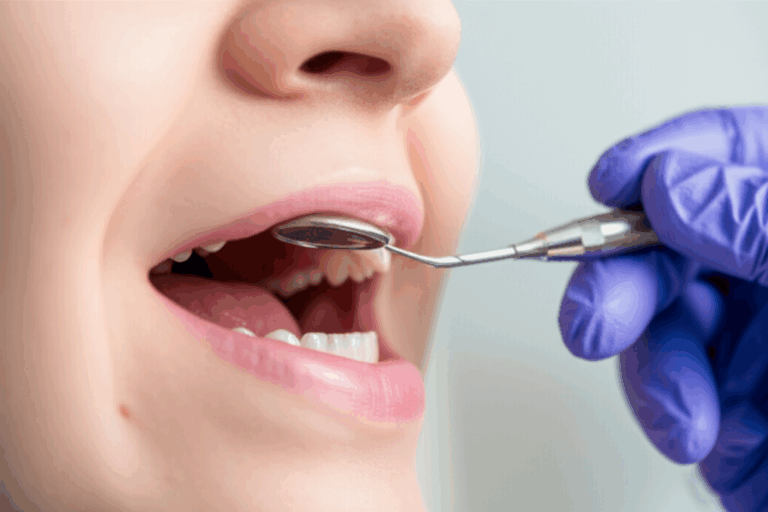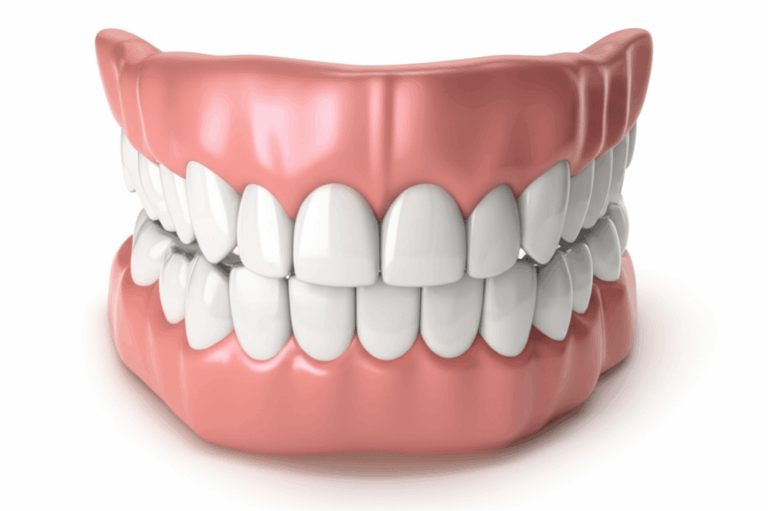
When Are Dental Implants Medically Necessary? Understanding Criteria, Benefits, and Coverage
Dental implants aren’t just to make your smile look better. Sometimes, you really need them for your health or to get through your daily life! If you want to know when dental implants move from “nice to have” to a “real need,” you’re in the right place. This guide explains, in clear and simple words, what makes dental implants medically needed, and how you or your family can benefit. By the end, you’ll know if implants are about more than just looks, how to show it’s needed, and what you can do about insurance. Let’s help you eat, talk, and feel good again!
Table of Contents
What Does “Medically Necessary” Mean for Dental Implants?
When you hear “medically necessary,” you might think of getting a cast for a broken arm or medicine for an illness. In dentistry, it’s any treatment you really need to keep your mouth, teeth, or jaw working right, or to stop a health problem from getting worse.
Dental implants can be much more than just a way to make your teeth look nicer. If you can’t eat, talk, or even keep your jawbone healthy because of missing teeth, implants go from a “want” to a “need.” It’s kind of like fixing the legs of a wobbly table. Sometimes it’s not about looks, but whether you can use it at all.
Doctors call something medically needed if it helps you:
- Chew food the right way
- Talk without trouble
- Stop health problems from missing teeth
- Not have pain, infections, or jaw problems
Medical necessity is not the same as cosmetic dentistry, which is all about how things look. Teeth whitening or small fixes to look good are cosmetic. If missing teeth make normal life hard, that’s a real need.
Who Decides If Dental Implants Are Needed?
It’s not just one person. Sometimes it’s a group! Here’s what usually happens:
The Dentist or Specialist
Your main dentist, or maybe an oral surgeon or prosthodontist, checks your mouth. They decide if an implant will solve a health problem, not just make you look better. They use dental X-rays, scans, and a hands-on check to know for sure.
The Insurance Company
Once your dentist explains everything, your insurance company will look at the info. These companies want proof—letters, reports, maybe even photos. They use special codes (like CPT or ICD-10) to see what’s wrong.
Clear Papers Matter!
A strong Letter of Medical Necessity from your dentist is super important for the insurance company. It explains just why you need the implant—not just why you’d like to have it.
When Do You Truly Need Dental Implants?
Let’s get clear. A lot of people lose teeth, but not everyone needs an implant because of health. Here are some real situations where an implant is about health, not just what you want:
1. You Can’t Chew Well (Risk of Not Eating Right)
Eating should be simple. But with not enough teeth, some foods are impossible to eat. Chewing poorly can mean bad digestion and not getting the right nutrients—which affects your whole body. If dentures slip or just won’t stay, implants can make a huge change.
2. Your Jawbone Is Getting Smaller (Bone Loss)
Did you know your jawbone stays strong because you use it to chew? Without that pressure from real teeth, the bone starts to shrink and get weaker. This is called bone loss. Over time, your face can look older or sunken, and other teeth may get loose as well.
3. Problems with Talking or Feeling Good Around People
Missing front teeth can make you lisp or have speech troubles. It can make you feel shy at work or school. Some people even avoid friends or feel worry because it’s hard to talk or eat around others. Implants fix what’s actually wrong, not just the look.
4. Damage from Injury or Disease
Sometimes you lose teeth after bad injuries (like sports or accidents), or from diseases like serious gum disease. Some people are even born missing teeth or lose them to oral cancer.
These are clear “need-to-have” reasons for implants.
Why Is Bone Health so Important for Implants?
Bones are like the foundation for your mouth. If you lose a tooth, the jawbone under it starts to go away. This isn’t just about looks. Weak jawbones can cause:
- Changes in how your face looks—sometimes called “sunken face”
- Teeth that get loose, causing a bad bite
- Less strength for chewing or talking
Dental implants are special because they help keep the jawbone strong. The implant acts like a real tooth root, giving the bone a reason to stick around. That’s called the bone “joining” with the implant. If you want a fix that lasts and keeps your face shape, implants are the best.
Table: Why Jawbone Health Matters
| Problem if jawbone gets weak | How Implants Help |
|---|---|
| Face starts to sink | Implant keeps bone strong |
| Dentures get loose | Implants are like roots |
| Teeth move or tilt | Implants keep teeth in place |
| Jaw pain (TMJ) | Bite is better |
How Do Implants Help with Eating and Speaking?
A missing tooth might not sound like a big deal, but try eating an apple with a gap where a back tooth should be. You’ll feel the difference! Missing teeth mean:
- Hard foods like meat, apples, or bread are hard or even painful to eat
- Chewing takes longer and can hurt
- Some people can only eat soft foods, so getting enough vitamins gets tough
Dental implants act like your own teeth. Chewing is normal again! You don’t need to skip your favorite foods, and your digestion gets better too.
Talking Gets Easier
Front teeth are important for sounds. Missing teeth often cause:
- Lisping
- Whistling sounds
- Words that aren’t clear
Implants fill the spaces where you need them for good talking. It gets easier to speak at school, at work, or with friends.
For anyone having a hard time eating or talking, dental implants are not just for looks—they are needed every day.
Can Missing Teeth Harm the Rest of My Mouth?
Yes, for sure! Leaving empty spaces can cause more problems.
- Teeth next to the gap start to move and slide into the empty spot. This makes cleaning harder—raising your chances of cavities or gum problems.
- Your bite can get worse, known as a bad bite. This wears down your other teeth, and they might even break.
- Extra pressure can make your other teeth loose faster.
- Your chances of gum disease go up and this can even make problems like diabetes harder to control.
Think of your mouth as a team—when one member is out, the whole group gets weaker. Dental implants help keep every tooth in place.
What Are the Health Risks of Not Getting Implants?
Not fixing missing teeth is about much more than “just eating soft foods.” Here’s what can really happen:
In short, letting gaps stay can bring big trouble. Dental implants have helped not just people, but families, get health and happiness back.
How Can You Prove Medical Necessity for Implants?
It’s all about having proof. If you want insurance to help (or just want to know you’re doing the right thing), do the steps below:
1. Get a Full Dental Exam
Your dentist will:
- Take dental X-rays or a 3D scan
- Check for bone loss, gum issues, and if your bite is okay
- Look for problems with talking, chewing, or pain
2. Ask for a Letter of Medical Necessity
This is a strong letter from your dentist explaining:
- The real health reasons you need implants (not just for looks)
- Problems you have with eating, talking, or bone health
- If other fixes (like root canal or bridges) didn’t work
- What can happen if you skip implants
3. Gather Other Proof
This could be:
- Notes from different experts (oral surgeons, prosthodontists, periodontists)
- Medical records showing issues like diabetes, accidents, or being born without teeth
- Photos and notes about failed dentures, losing weight, or talking problems
When you show all this, insurance has a harder time saying no.
Do Insurance Plans Cover Medically Necessary Dental Implants?
The answer? Sometimes. Many dental plans still say implants are for looks only. But you can fight for coverage if you really need them.
Dental Insurance
Most regular plans pay for dentures or bridges, but might not pay for implants unless you show it’s needed for your health. Use your checkup and that Letter of Medical Necessity. If they say no, try again with more proof.
Health Insurance and Other Help
Check with your main health insurance, especially if:
- You had an accident or injury
- Had cancer needing mouth rebuild
- You were born with teeth missing
Programs like Medicare, Medicaid, VA benefits, or even funds like HSA/FSA might help if your implants are a health need.
For example, some veterans can get implants if their tooth loss was from service. Kids or adults born without teeth might also get help.
If you want more answers, check with a digital dental lab. These places often help patients get the right insurance papers together.
What Are Your Next Steps if You Need Dental Implants?
Want to get started? Here’s a simple list:
Summary: Key Points to Remember
- Dental implants are sometimes truly needed, not just for looks.
- You might need implants if missing teeth make it hard to chew, talk, keep your jaw strong, or you’re in pain.
- Implants can bring back health, keep bone strong, fix your bite, and get you feeling good about life again.
- Insurance usually wants lots of proof—start with a good exam and a clear Letter of Medical Necessity.
- Always ask about medical plans, VA benefits, or FSA/HSA options for help with costs.
- For special help, talk with the right digital dental lab for the best care.
Take care of your teeth, and they’ll take care of you—today, tomorrow, and always!








